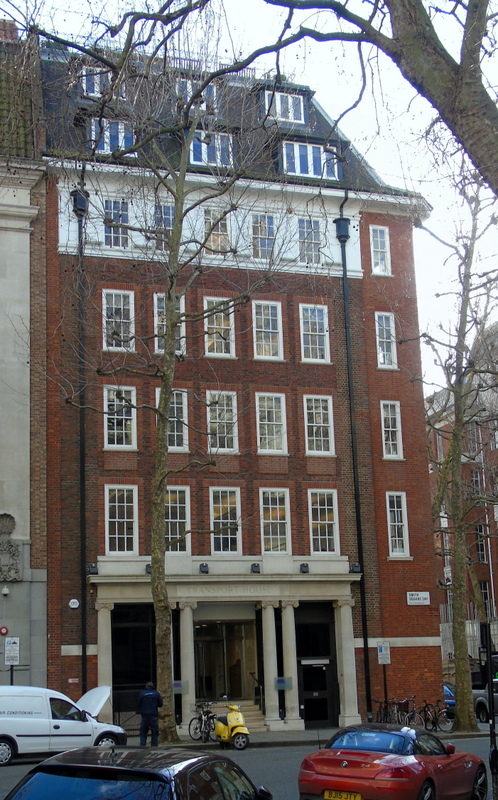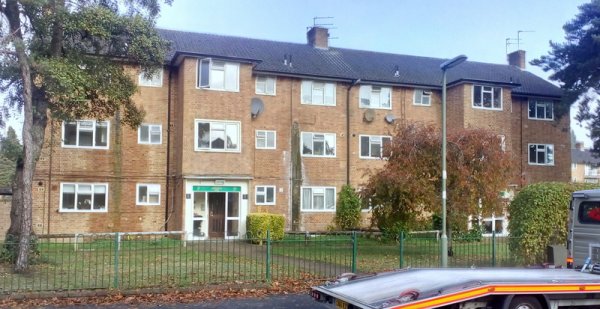Dec 21st 2018, 20:29
Blog 21st December 2018
In this week’s blog, I refer to: James Brokenshire MP; the Ministry for Housing, Communities & Local Government; Local Government Funding Settlement; Philip Hammond MP; Lord Gary Porter; Local Government Association; In Facts; UK Economy; Woking Borough Council; Sheerwater Regeneration scheme; Service Charges; Seminars and Training.
James Brokenshire MP, the Secretary of State for Housing, Communities & Local Government, announced the delayed Local Government Funding settlement for England for 2019/20 on 13th December. The settlement provides for an increase in councils’ spending power of 2.8% to £46.4billion in 2019/20. However, this is dependent on councils increasing Council Tax by the maximum amount allowed of 3%; and follows seven years during which councils’ budgets have been reduced significantly as central government financial support has been largely withdrawn. James Brokenshire recognised this recent history by saying that:
“I am in no doubt about how challenging it has been for councils to drive efficiencies as they contributed to helping rebuild our economy and tackling the deficit.”
In his autumn budget in November 2018. Phillip Hammond, the Chancellor of the Exchequer, announced that an additional £650million would be made available for social care. Of this £240million will be focused on winter pressures with the remainder to be used flexibly, on either adult or children’s services.
A £16million increase to the rural services grant was announced to maintain funding at last year’s level and to recognise the additional costs of providing services in rural communities.
£20million was committed to maintain the new homes bonus baseline at 0.4%.
Regarding negative revenue support grant, James Brokenshire said that:
“I am pleased to announce that we intend to directly eliminate the £152.9million negative revenue support grant in 2019/20 using forgone business rates… This will prevent any local authority being subject to downward adjustment to their business rates tariffs and top ups that could act as a disincentive to growth.”
A further fifteen councils, mainly counties, will take part in the 75% business rates retention pilots.
Increased growth in business rates income has generated a surplus business rates levy account of £180million in 2018/19 that the government will distribute to all councils based on need.
 Local Government Association Offices in Smith Square, Westminster.
Local Government Association Offices in Smith Square, Westminster.
Lord Gary Porter (Conservative), the Leader of the Local Government Association and of South Holland District Council said that:
“Next year will continue to be hugely challenging for all councils, who still face an overall funding gap of £3.2billion in 2019/20. It is therefore disappointing that the government has not used the settlement to provide further desperately-needed resources for councils next year.”
He called for next month’s final settlement to include “further resources” to protect local services.
James Brokenshire said that:
“There is little doubt that the current funding formula needs fixing – and replacing with a robust straightforward approach where the link between local circumstances and resources allocated is clear.”
Two further consultations were announced on:
AWICS has assisted in the preparation of the Local Government Association’s Fair Funding Review Modelling tools. For more information about this, please click here.
An interesting piece appeared in ‘In Facts’ this week by Vicky Pryce. She points out that the UK economy is suffering from low demand from consumers, investment and exports despite low interest rates encouraging consumer debt and high levels of government borrowing.
She explains how this is reconciled with high levels of employment as follows:
“Firms have been reluctant to invest and have instead met any increased demand by hiring more workers. That’s good for employment but bad for productivity as many of these jobs have been in low paid, often part-time, roles. Innovation has suffered and this will have a long term effect on the UK’s competitiveness.”
Her conclusion is that:
“Consumers can ill afford to carry on borrowing to finance spending at a time of rising interest rates and increasing insecurity… the UK economy is now running on debt and borrowing. At some stage this mini bubble will deflate.”
There are already signs that the bubble is beginning to burst. Already, in Cumbria for example, property values are falling and unemployment is increasing.
We are currently working as Independent Tenants Advisors at the Sheerwater Regeneration scheme in Woking. Recently, revisions to the original planning application have been submitted to the Planning Authority to reflect feedback from residents. There are three areas of improvement to the scheme:
 Flats in Sheerwater, Woking.
Flats in Sheerwater, Woking.
Residents may be disappointed that work has yet to begin on the leisure centre and swimming pool which the Council had hoped would be underway by now. The Council is working through several issues that will enable them to commence next year. It is still the intention to deliver the new community facilities before delivering the new homes. The Council has already delivered the new access road into Sheerwater that has increased employment opportunities, and the replacement athletics track at Egley Road that the club moved into during October.
Our next seminar will be on: ‘All You Want to Know about Service Charges in Social Housing' and will be held in London on 19th February 2019. This seminar is designed to give an introduction and overview to this important subject and is fully up to date with all developments. It will address the following questions:
This seminar is proving very popular, but we still have a few places available. For more information or to make a booking, please click here.